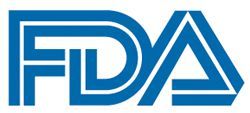News
Article
ABM-1310 Receives FDA Fast Track Designation for BRAF V600E+ Glioblastoma
Author(s):
The FDA has granted fast track designation to ABM-1310 for the treatment of patients with glioblastoma harboring BRAF V600E mutations.
FDA

The FDA has granted fast track designation to ABM-1310 for the treatment of patients with glioblastoma harboring BRAF V600E mutations, according to an announcement from ABM Therapeutics.1
“We are very grateful to the FDA for recognizing the potential of our novel next-generation investigational drug ABM-1310 to help patients with brain tumors,” Zane Yang, MD, chief medical officer of ABM Therapeutics, stated in a news release. “This offers ABM an interactive collaboration with the FDA to ensure ABM-1310 clinical development expeditiously with the highest standards of safety and quality.”
In August 2023, the FDA granted orphan drug designation to ABM-1310 for the treatment of patients with BRAF V600E–mutated glioblastoma.2
The novel, small-molecule BRAF inhibitor is currently under investigation in phase 1 trials in the United States (NCT04190628) and China (NCT05501912; NCT05892653).
Data from the first-in-human study being conducted in the United States were presented at the 2023 ASCO Annual Meeting.3 Among patients treated with ABM-1310 monotherapy who were evaluable for efficacy in part A (n = 20), partial responses (PRs) were observed in 1 patient with glioblastoma, 1 with thyroid cancer, and 1 with xanthoastrocytoma. Additionally, 9 patients experienced stable disease (SD) per RECIST v1.1 or Response Assessment in Neuro-Oncology criteria.
Among evaluable patients treated with ABM-1310 plus cobimetinib (Cotellic) in part B (n = 8), 1 patient with melanoma and 1 patient with thyroid cancer achieved a PR, and 2 other patients experienced SD.
Among patients evaluable for safety in part A (n = 21), 15 experienced treatment-related adverse effects (TRAEs). Four patients had grade 3 TRAEs consisting of nausea/vomiting (n = 1), QT prolongation (n = 2), and rash (n = 1). Serious TRAEs occurred in 2 patients, which included grade 3 nausea/vomiting (n = 1) and grade 2 increased creatinine (n = 1).
In part B (n = 8), 7 patients experienced any-grade TRAEs, including 1 patient who had grade 3 rash.
All 3 patients in part A treated with 250 mg of ABM-1310 monotherapy experienced dose-limiting toxicities leading to dose interruption or reduction, including grade 3 QT prolongation (n = 1), grade 2 QT prolongation (n = 1), and grade 2 increased creatinine plus grade 3 QT prolongation (n = 1). Notably, no patients discontinued treatment early due to safety or tolerability, and no treatment-related deaths were reported.
The open-label, dose-escalation trial is enrolling adult patients with advanced or recurrent BRAF-mutated solid tumors. Those with brain metastases from solid tumors for primary malignant brain tumors are allowed to enroll, and prior treatment with BRAF/MEK inhibitors is permitted.
In part A, patients received oral ABM-1310 twice per day at doses of 25 mg (n = 3), 50 mg (n = 3), 100 mg (n = 4), 150 mg (n = 4), 200 mg (n = 4), and 250 mg (n = 3). In part B, patients were treated with 100 mg of ABM-1310 twice per day plus 60 mg of cobimetinib once per day (n = 3) or 200 mg of ABM-1310 twice per day plus 60 mg of cobimetinib once per day (n = 5).
The primary objectives of the study are to determine the maximum tolerated dose and recommended phase 2 dose of ABM-1310, and secondary objective included safety/tolerability, preliminary efficacy, and pharmacokinetics.
References
- ABM Therapeutics’ ABM-1310 granted fast track designation by the FDA following orphan drug designation. News release. September 26, 2023. Accessed September 26, 2023. http://www.abmtx.com/site/newsdetails/88
- US FDA grants orphan drug designation to ABM-1310 for the treatment of patients with glioblastoma harboring BRAF V600 mutation. News release. ABM Therapeutics. August 2, 2023. Accessed September 26, 2023. http://www.abmtx.com/site/newsdetails/85
- Piha-Paul SA, Nagpal S, Weise AM, et al. A phase 1, multicenter, open-label study of a new BRAF inhibitor ABM-1310 in adult patients (pts) with BRAFv600-mutated solid tumors. J Clin Oncol. 2023;41(suppl 16):3098. doi:10.1200/JCO.2023.41.16_suppl.3098









%20(2)%201-Recovered-Recovered-Recovered-Recovered-Recovered.jpg?fit=crop&auto=format)